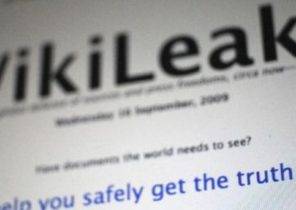Professor Anne-Marie Moulin from the national center for scientific research talks about the history of attitudes to vaccination in France.
Le Figaro: According to the published in late 2016 the survey, 40% of the French do not believe vaccines are reliable. When there is distrust?
Anne-Marie Moulin: With the appearance in England, 1796 to the present day history of vaccination was not easy. It’s called enthusiasm, but at the same time, the controversy, because the vaccine was originally alive and fragile.
The most serious crisis occurred in 1929 in the German Lubeck, where the vaccination campaign against tuberculosis led to the death of about a hundred children. This was followed by the trial, the first major medical process, in which it was found that the vaccine had been infected by active tubercular bacilli. The transition to industrial production is also accompanied by incidents as, for example, with Cutter, in 1955, whose vaccine was infected with polio 40 thousand young Americans. Used for its production strain has not been sufficiently weakened.
In our era avoid any similar tragedies. Some of the debate about the accountability vaccines for the occurrence of chronic, autoimmune and inflammatory diseases. This is very different from the cases of death, whose cause is much easier to install.
— What are the growing doubts about vaccines?
— Most have appeared in recent years, vaccines are abstract. Diseases against which they protect, nothing more to say to people. This applies, for example, the polio vaccine, which is now invisible in France, there were children in the 1950-ies. Hepatitis b is also relatively little known, especially its consequences, cirrhosis or liver cancer occur years after infection. In Africa, this virus causes cancer of the liver have someone in almost every family, but in France, vaccination of the newborn seems absurd, because the danger is completely unrealistic.
— Why do vaccines cause more doubt than any other medications?
In contrast to medicines, vaccines do not cure the disease. In addition, our historical heritage with Louis Pasteur, makes France a country of vaccination. To such an extent that for a long time, it all idealiziruete. Except that the vaccine does not correspond to the social image. Their effectiveness varies from qualities of every person’s genome. As with any health effects, you may experience side effects, mostly transient and weak. Possible more serious complications but this happens only in extremely rare cases. In the past it was perceived as just the vicissitudes of fate. Today people feel betrayed, and the media fanning the alarm. Such misinformation leads some to the fact that they splash the water with your child.
— What do you think about the position of the state authorities about this?
— The lack of it causes alarm among the population and reinforces his distrust of the state. So, although the territory of the Ile-de-France, it is strongly recommended BCG vaccination, families can be difficult to obtain. Power is not the best way to behave in this matter and in the past have preferred to turn a blind eye. The distrust of the population today and spreads to physicians. Therapists almost no time for discussion, and some of them questioned themselves in the past vaccines.
In parallel with this traditional sanitary information the levers are gradually disappearing. No school of medicine, and the labor is experiencing considerable difficulties. All this leads, if not to distrust, then, at least, to doubt people.







